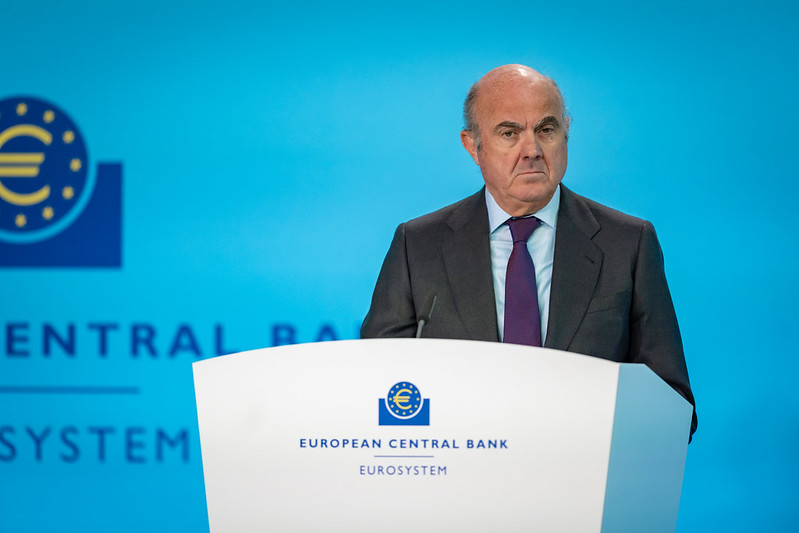ECB’s de Guindos: ‘All Indicators for Services and Underlying Inflation Are Moving in the Right Direction’
16 March 2025

By David Barwick – FRANKFURT (Econostream) – European Central Bank Vice President Luis de Guindos on Sunday gave an upbeat assessment about the likelihood that euro area inflation would return to 2% in the medium term.
In an interview with The Sunday Times, de Guindos, according to a text provided by the ECB, said that disinflation was ‘on track’ and downplayed as in line with expectations the recent uptick of inflation.
‘The main reason for our confidence that inflation will come down to 2% is that all indicators for services and underlying inflation are moving in the right direction’, he said. ‘A very important one is compensation per employee. According to recent data and in line with our projections, wage growth is moderating, which will help services inflation to gradually decline.’
Uncertainty related to factors such a fiscal policy and tariffs exceeded that of the pandemic, according to de Guindos, who observed by way of example that ECB macroeconomic projections did not incorporate final tariffs, these being yet unknown.
Even so, ‘we are confident that headline inflation will converge on a sustainable basis towards our 2% medium-term target towards the end of this year or the beginning of next’, he reiterated.
‘Even energy prices, which had also resulted in a small pick-up in inflation, have started to decline’, he said.
Queried about higher bond yields of late because of new German fiscal intentions, de Guindos said that the ECB naturally looked at financing conditions and mentioned in this context that the ECB’s bank lending survey was ‘very useful.’
The ECB had to look through short-term developments like the increase in yields and the recent correction on the US stock market, focussing instead on what was relevant for the medium term, he said.
‘If we were to be as volatile as the markets, that wouldn’t be very reassuring’, he said.
In addition to tariffs, the new US presidential administration’s plans for financial sector deregulation and corporate taxation, along with the new disinterest in multilateralism, were all sources of uncertainty, he said.
With respect to tariffs, de Guindos expressed the hope that there would soon be more clarity.
‘Obviously, a trade war would be a lose-lose situation for everybody’, he said. ‘It would have a much worse impact on growth than on inflation. This is because increasing tariffs raises prices at first, but lower growth subsequently offsets this initial price increase.’
Uncertainty was also associated with the European Commission’s defence spending proposal, which would affect macroeconomic prospects, he said.
‘We don’t know enough details about the package to make an accurate assessment about its impact on the economy, but it will likely be positive for growth and have a limited impact on inflation’, he said.
